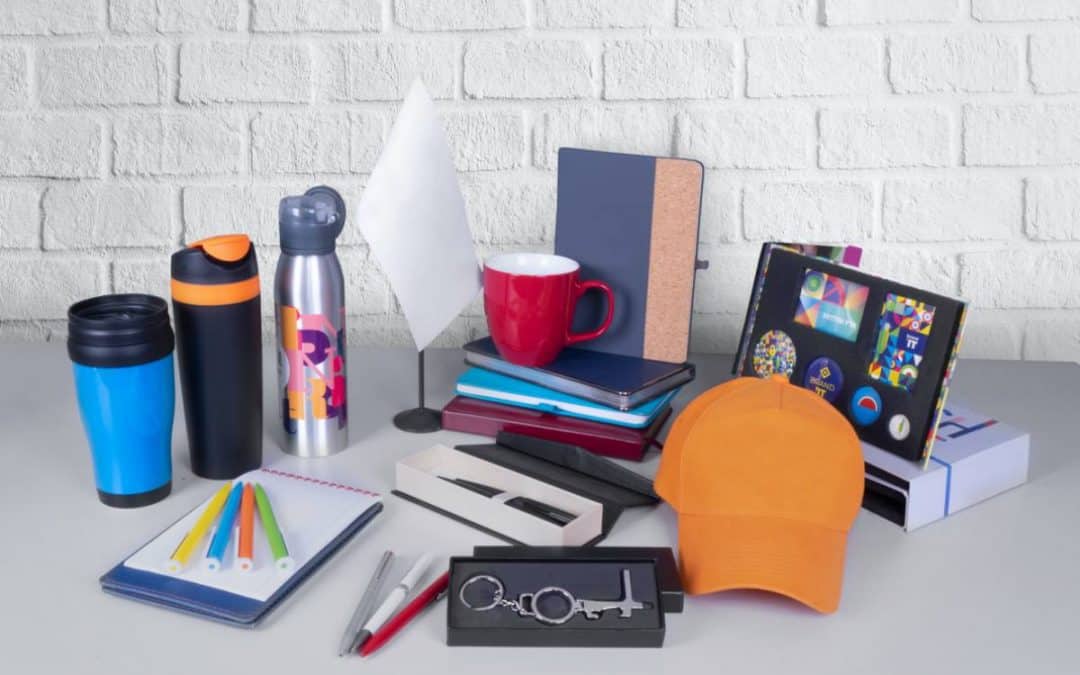Promotional products, often referred to as swag or branded merchandise, are items imprinted with a company’s name, logo, or message designed to increase brand awareness among consumers. They are a vital part of marketing strategies worldwide, and their importance is particularly pronounced in the Middle East, specifically in countries like the United Arab Emirates (UAE), Saudi Arabia, and Qatar.
Promotional products range from everyday items like pens, mugs, and t-shirts to high-end corporate gifts such as luxury pens, leather goods, and tech gadgets. The primary goal is to keep the brand at the forefront of consumers’ minds, fostering a positive association and encouraging loyalty.
In the Middle East, promotional products have gained significant traction due to the region’s unique cultural, economic, and business landscape. The UAE, Saudi Arabia, and Qatar are known for their thriving economies, robust business environments, and high consumer purchasing power. These factors, combined with the region’s strong emphasis on relationships and personal connections in business dealings, make promotional products a powerful marketing tool.
Cultural Significance
In Middle Eastern culture, gift-giving is a traditional practice and a sign of respect and goodwill. It is common in both personal and business relationships. Therefore, promotional products, when chosen thoughtfully and presented appropriately, can resonate deeply with recipients in this region. They can serve as a tangible representation of a company’s appreciation and respect for its customers, partners, or employees.
Brand Visibility and Recall
Promotional products are an effective way to increase brand visibility and recall. In bustling cities like Dubai, Riyadh, and Doha, where businesses compete for consumer attention, promotional items can help a brand stand out. A well-chosen promotional product can be used repeatedly, ensuring that the brand remains visible to the consumer and anyone else who encounters the item. This repeated exposure can significantly enhance brand recall, making consumers more likely to choose the brand when making a purchase.
Building Relationships
In the business landscape of the UAE, Saudi Arabia, and Qatar, relationships are paramount. Business dealings are not just transactional; they are built on trust, mutual respect, and personal connections. Promotional products can play a crucial role in fostering these relationships. A well-chosen, high-quality promotional item can convey a company’s appreciation for its clients, partners, or employees, strengthening the relationship and promoting loyalty.
Promoting Luxury and Quality
The Middle East, particularly the UAE, Saudi Arabia, and Qatar, is known for its affinity for luxury and quality. Consumers in these countries often associate higher prices with better quality and prestige. Therefore, promotional products that reflect these values can be particularly effective. High-end promotional items, such as luxury pens, designer accessories, or cutting-edge tech gadgets, can help a brand position itself as premium and high-quality in the minds of consumers.
Adapting to Market Trends
The Middle East is a dynamic and rapidly evolving market. In recent years, there has been a significant shift towards digitalization and sustainability in the region. Businesses can leverage these trends in their promotional product strategies. For example, tech-related promotional items, such as branded power banks or wireless chargers, can appeal to the region’s tech-savvy consumers. Similarly, promotional products made from sustainable materials can resonate with increasingly environmentally conscious consumers.
To conclude, Promotional products are a powerful marketing tool worldwide, and their importance is particularly pronounced in the UAE, Saudi Arabia, and Qatar. They can increase brand visibility and recall, foster relationships, convey a brand’s values, and adapt to market trends. By understanding the unique cultural, economic, and business landscape of the Middle East, businesses can leverage promotional products effectively to achieve theirmarketing objectives.
In the Middle East, where business is often personal and relationships matter, promotional products can serve as a tangible representation of a company’s appreciation and respect for its customers, partners, or employees. They can help build and strengthen these relationships, fostering loyalty and trust.
Moreover, promotional products can help a brand stand out in the competitive business environments of cities like Dubai, Riyadh, and Doha. They can keep the brand at the forefront of consumers’ minds, enhancing brand recall and increasing the likelihood of future purchases.
Promotional products can also help a brand position itself as premium and high-quality, aligning with the region’s affinity for luxury and quality. High-end promotional items can convey a sense of prestige and exclusivity, appealing to the region’s high-income consumers.
Finally, promotional products can help businesses adapt to market trends. Whether it’s the region’s shift towards digitalization or increasing environmental consciousness, businesses can choose promotional items that reflect these trends, resonating with consumers and staying relevant in a rapidly evolving market.
In conclusion, promotional products are more than just freebies or giveaways. They are a strategic marketing tool that can help businesses achieve their objectives in the Middle East. By understanding the region’s unique landscape and leveraging promotional products effectively, businesses can increase brand awareness, build relationships, convey their values, and stay ahead of market trends. In the dynamic and competitive markets of the UAE, Saudi Arabia, and Qatar, promotional products can be a key factor in a business’s success.


